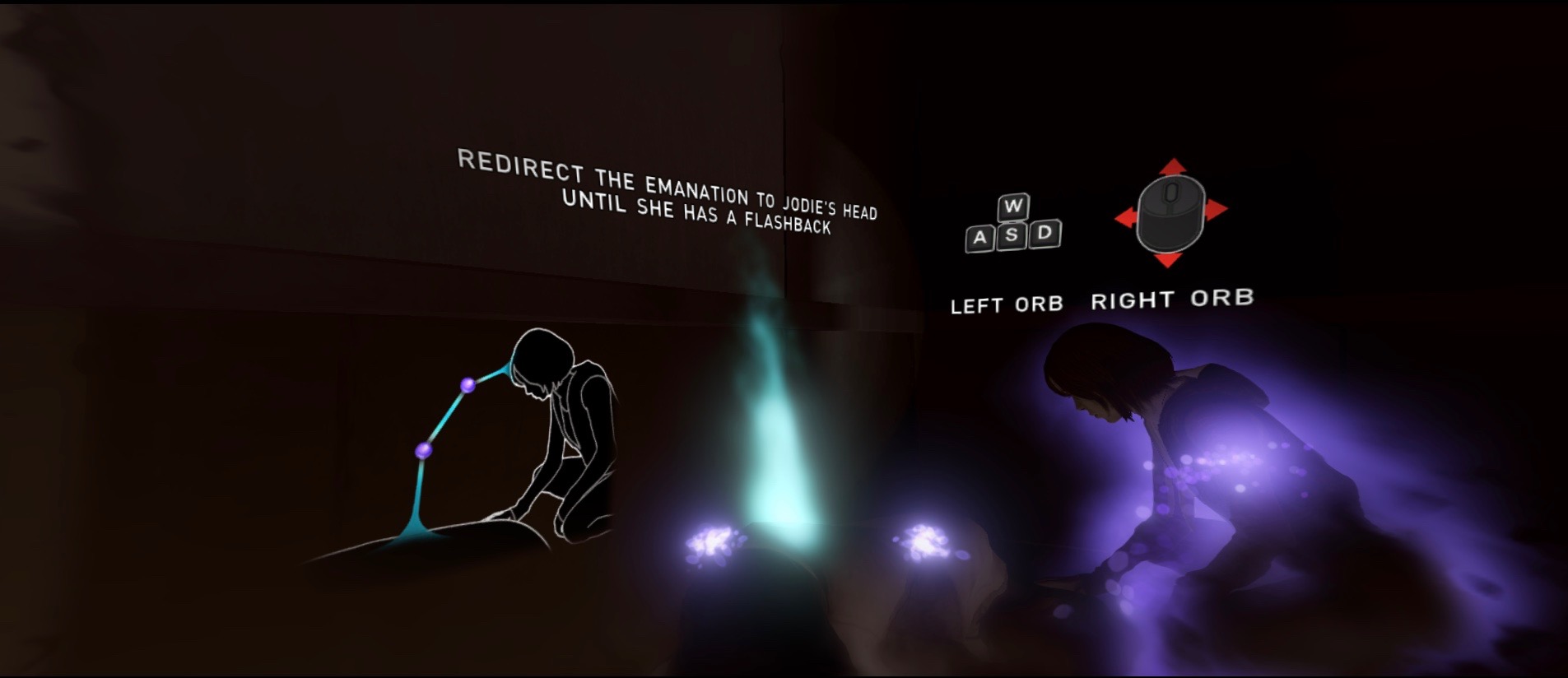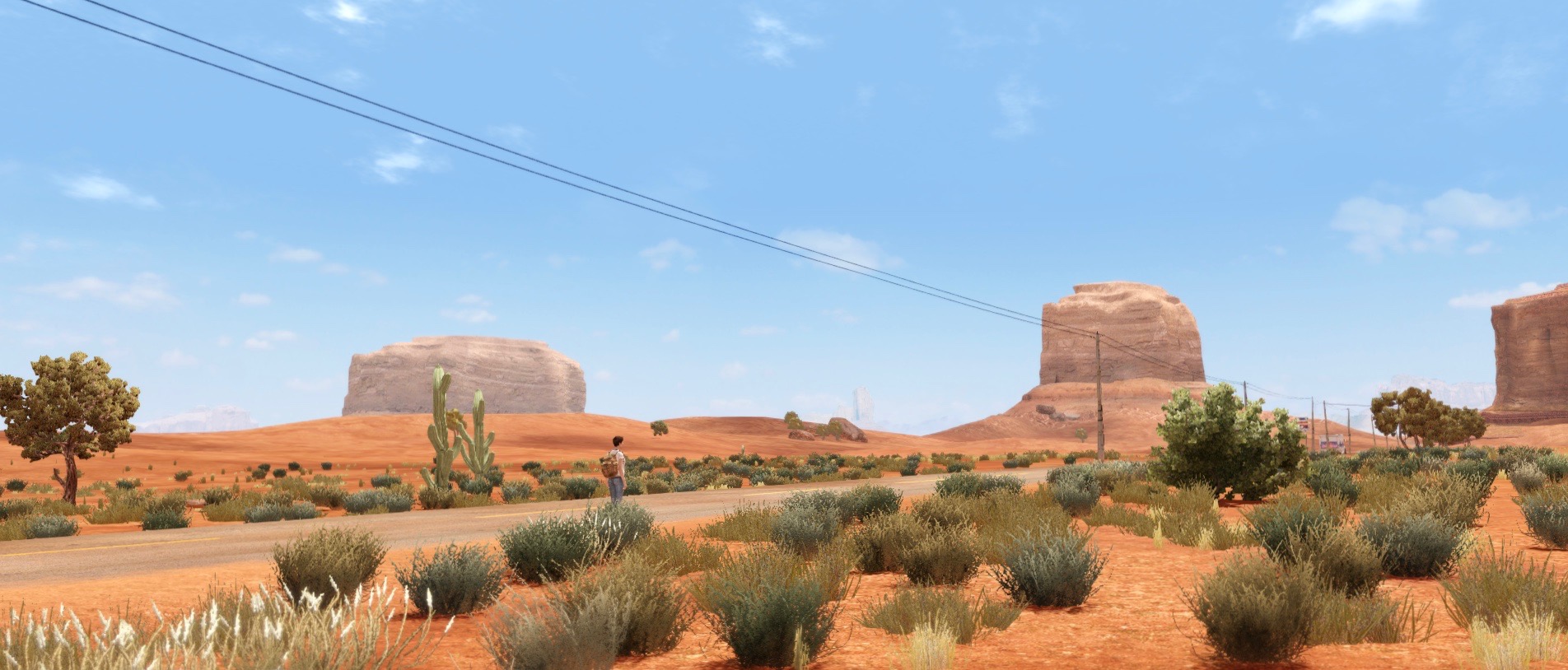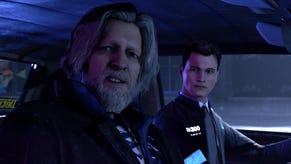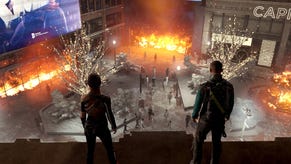Wot I Think - Beyond: Two Souls
QTEs are the baddie taping your eyes open so you're forced to watch
The year is 2019 and I have never played a David Cage game. Sure, I said, I can review Beyond: Two Souls. It will be a good opportunity to see what all the fuss is about, both negative and positive. I’ll keep an open mind.
That open mind, like all best-laid plans, did not survive contact.
[Content warning for mention of self-harm.]
Beyond: Two Souls is the tale of Jodie, and her ghost pal Aiden. It’s a series of non-chronological vignettes about her life being complete and utter chaos because everyone wants to know exactly what the deal is with them and how they can use it to their advantage. You play as both; Jodie to talk or run or fight, and Aiden to toss stuff around all spooky like.
One of the things that David Cage likes to talk about is video games being just as legitimate as TV or film. He has been on this argument since before this game was released back in 2013, and he still is today. That might explain why Beyond: Two Souls would make a bearable 10-episode Netflix show, despite being a truly awful game.
I know bad TV. I’ve watched 14 seasons of Criminal Minds, and then the Korean version that crammed all that delicious garbage into 20 episodes, for maximum concentrated delivery. But watching Criminal Minds allowed me scroll through Twitter on my phone when things were especially schlocky. Beyond: Two Souls made me cut up Jodie’s potatoes.
Every single interaction feels about that impactful. Sure, most of them are in repetitive fights rather than at the dinner table, but failing the quick-time events or stealth sections rarely means much. Not that it would be better if the game forced me to try them over every time I struggled over the game’s gummed up controls and camera with a mind of its own. And in quieter bits, where you’re just playing as Jodie doing everyday stuff like tidying her apartment, it’s not even easy to tell what will trigger the game to progress, leading to a hesitant, frustrating tempo.
You know what doesn’t have this problem? Television. Even better, film. Cut this 10 hours into two and let me stick it on my second monitor while I play Hearthstone. At least then it’d have some sense of choreography and flow to the fights, not a constantly juddering slow-down prompting you to jerk your mouse in a certain direction in order not to get Jodie beaten up.
And boy does Jodie get beaten up. Actor Ellen Page was nominated for a bunch of awards for her performance in Beyond, and while she does an admirable job with the awful script she was given, it feels like a solid 50% of her recording time was spent capturing crying, screaming, or various other sounds of distress. And yet her suffering isn’t wielded with any kind of subtlety. At one point, when she hits rock bottom, she finds a knife embedded in a tyre. Will you press left shift to self-harm?
Neither is that the only theme that the game treats with all the grace of a bull in an antique store. Other than Jodie and a handful of background teens, the women in the game comprise two mothers and a grandmother. But this isn’t an exploration of motherhood so much as a fascination, in the way a child might spend their time repeatedly poking a bug with a stick. It pigeonholes women, where men get to be CIA agents and government officials and researchers, and leans voyeuristic in the many separate occasions it lingers on literal childbirth.
Non-white cultures are painted with the same broad brush. About halfway through the game, Jodie stumbles into the ranch of a Navajo family. It’s quickly revealed that they’re menaced by ghosts, which is something Jodie knows a thing or two about. In order to help them, she must correct an ancient ritual gone wrong. The ancestors who performed it “were lost, full of hatred for the white man,” explains the grandmother. No matter, Jodie is here to swoop in and fix the problem that’s defied solution for generations.
It’s also a story that’s going where it’s going, player choice be damned. This is something that “choices matter” games have struggled with for a while, but they usually get away with it by allowing moments of customisation within an essentially fixed plot. Instead, Beyond is constantly shoving you back onto its path, resulting in inconsistent characterisation and unsatisfying arcs. You can murder your way through early sections with glee, only for Jodie to suddenly be horrified by killing when the story calls for it. And don’t even get me started on how hard I tried to avert the romance.
Beyond: Two Souls feels like a Frankenstein creature; a television show with interactivity jammed in for the sake of it. It’s an interminable cutscene that demands your input at every moment, constantly disrupting the flow of the story to do so, but doesn’t reward your actions with any kind of meaning. And being held hostage to every second only means you have a whole lot of time to think about how Ellen Page deserved better.







